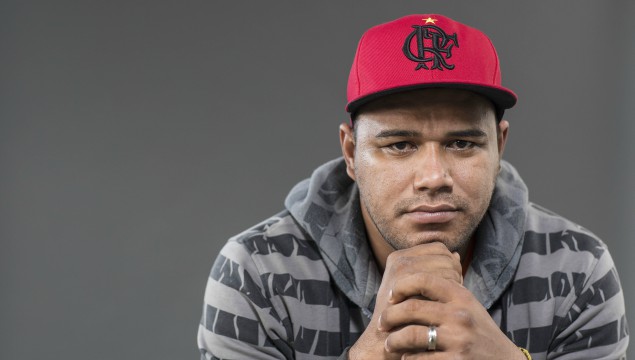Latest Photo Galleries
Brazilian Markets
12h03 Bovespa |
-0,14% | 129.028 |
16h43 Gold |
0,00% | 117 |
12h17 Dollar |
+0,39% | 5,0873 |
16h30 Euro |
+0,49% | 2,65250 |
ADVERTISING
I Expect Nothing From Government, I Want To Work, Says Venezuelan Immigrant
08/24/2018 - 14h20
Advertising
FLÁVIA MANTOVANI
SÃO PAULO
Daniel Pozo, 33, used to weigh 200 pounds. But when the Venezuelan immigrant arrived in São Paulo, in April, his weight was 141 pounds. Food shortages in Venezuela, the 14-day walk to the border and lack of money to buy groceries in Roraima made the former bus driver lose one third of his body mass.
"We are starving. That is the reality," he says. "[In Venezuela] I could only manage to eat once a day and sometimes I would skip that meal so my children could have food."
After four months in São Paulo, with three daily meals available in the shelter where he lives, Pozo recovered his previous weight.
| Eduardo Knapp/Folhapress | ||
 |
||
| Daniel David Pozo |
But he claims he doesn't want to get too comfortable: "I didn't come here expecting the Brazilian government to give me anything. We don't want to sit still until something falls from heaven," Pozo says. He recently got a job in a retail chain.
According to Pozo, walking the 620 miles from his town to Roraima was almost an odyssey: "I starved, felt cold, felt hot, my feet got full of blisters," he describes. It was a completely different reality from his life before Venezuela's crisis: "We lived well. I had three buses. But lack of money and replacement parts caused them to deteriorate to the point of no recovery."
His goal is to establish himself and send money to his children. "I miss them a lot. But I need to forget my feelings and work so they won't starve."
Pozo shares a room full of bunk beds with other 166 countrymen in the São Mateus neighborhood, where most of the Venezuelan immigrants who crossed the border at Roraima are staying. They came with the help of a federal government program aimed at distributing Venezuelans to other states in Brazil.
Translated by NATASHA MADOV



